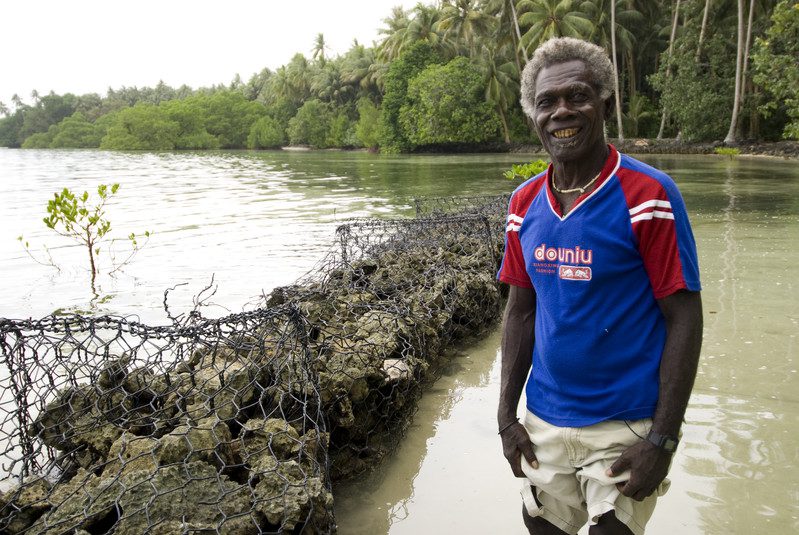Impacts of climate change
While Australia is feeling the effects of climate change, it’s people in developing countries like the Pacific Islands, South East Asia and sub Saharan Africa who are bearing the brunt of it.
The poorest communities in the world are suffering because of the actions of the richest nations. Seem fair? We don’t think so either.
Consider this:
- 50 million more people will be forced into hunger by 2050 due to climate change – about 75% of that number will be in Africa
- Over half of the 4 billion people in Asia (60% of the world’s population) live near the coast, making them directly vulnerable to sea level rise
- Crops on six of Tuvalu’s eight islands have been damaged by rising sea levels and more severe storms affecting local food supplies
Humanitarian disasters and conflicts will increase
When disaster strikes, vital resources like food and water are always impacted and pressure on limited resources often leads to an increase in conflict. And temporary camps – where people are forced to flee in times of disaster and conflict – are often dangerous and disease-prone places. Particularly for women and children.
More people will go hungry
A big increase in unpredictable weather related to climate change is affecting crops, meaning that poor people can no longer grow enough food to feed their families. This is contributing to the current world food crisis which is causing one sixth of the world’s population to go hungry.
People will lose their means of making a living
With the damage climate change is doing to crops, many of the world’s poorest people who are dependent on agriculture, are finding their meagre incomes further reduced. They’re also struggling to find other ways of making a living causing them to sink deeper into poverty. Rising food prices are also increasing poverty in both urban and rural areas.
More people will be displaced
As poor countries feel the effects of climate change, the reality of relocation is of international concern. Pacific islanders will be among the world’s first people displaced because of climate change. Today there are an estimated 26 million climate refugees, yet by 2050, 200 million people a year will be on the move due to hunger, environmental degradation and loss of land due to climate change. Watch Ursula’s story – a brave and inspiring woman from the Cartaret Islands who is taking control by helping her people relocate to Bougainville PNG.
Drought and water shortages will increase
Changes in rainfall, river flows and storm patterns have created some of the biggest climate change impacts being felt by communities. Many regions are experiencing longer dry seasons and increased drought. By 2020, between 75 million and 250 million people in Africa are expected to suffer increased water shortages due to climate change. This burden is felt most acutely by women, who will have to spend more time and walk longer distances to collect water for their families.
